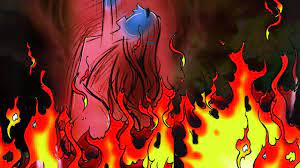THE SUPREME COURT OF INDIA
Equivalent Citations
[Before : N.V. Ramana; CJI, A.S. Bopanna, Hima Kohli]
Kuljit Singh & Anr. versus State of Punjab
Case No. : Criminal Appeal No. 572 of 2012
Date of Decision : 08-12-2021
(A) By the said judgment the High Court has dismissed the appeal filed by the appellants herein and upheld the conviction of the appellants ordered by the learned Sessions Judge, Amritsar in Sessions Case No.74 of 1999 registered for the offence under Section 304-B of Indian Penal Code (‘IPC
(B) The appellant No.1 (Kuljit Singh) who is on bail, shall surrender within two weeks from the date of this judgment and serve the remaining sentence. The appellant No.2 (Raj Rani) is set at liberty if not wanted in any other case and the bail bonds executed by her is ordered to be cancelled. The appeal is allowed in part to the above extent. Pending applications, if any, shall stand disposed of*
Statutes Referred
1. Indian Penal Code -- S.304-B
2. Code of Criminal Procedure -- S.313
JUDGMENT/ORDER
A.S. Bopanna, J
1. This appeal is directed against the judgment dated 18.01.2011 passed by the High Court of Punjab and Haryana, Chandigarh in CRA-S-307-SB of 2002. By the said judgment the High Court has dismissed the appeal filed by the appellants herein and upheld the conviction of the appellants ordered by the learned Sessions Judge, Amritsar in Sessions Case No.74 of 1999 registered for the offence under Section 304-B of Indian Penal Code (‘IPC’ for short). The sentence of rigorous imprisonment for 8 years imposed on both the appellants by the learned Sessions Judge was however modified. In that regard, the period of imprisonment to be undergone by the appellant No.2 – Raj Rani alone was reduced to 7 years. The appellants thus being aggrieved by their conviction and sentence are before this Court in this appeal
2. We have heard Mr. Himanshu Gupta, learned counsel for the appellants, Ms. Jaspreet Gogia, learned counsel for the respondent and perused the appeal papers.
3. The undisputed facts are that the appellant No.1 and the deceased Manju i.e. the eldest daughter of Gurnam Singh were married in the year 1997. The incident in question leading to the death of Manju had occurred on 02.03.1999 i.e in a short span of about 2 years from the date of marriage. The death of Manju, the wife of the appellant No.1 was an unnatural death. The cause of death as spoken to by the expert witnesses was due to consumption of insecticide. Therefore, ex facie it is noticed that the circumstances provided under Section 304-B IPC to the extent; the death of the woman being caused otherwise than under normal circumstances and such death having occurred within 7 years of her marriage, would stand established.
4. In that background, since the appellants were charged of having committed the offence under Section 304-B IPC, the factual aspects which were required to be established by the prosecution in the course of trial is about the deceased being subjected to cruelty or harassment by her husband or any of his relatives and that such cruelty or harassment was for or in connection with demand for dowry.
5. In the instant facts, to establish this aspect of the matter, the father of the deceased (Gurnam Singh) was examined as PW1 and the mother of the deceased (Charanjit Kaur) was examined as PW8, while another witness Bidhi Chand was examined as PW7. From the evidence of the said witnesses, the trial court as well as the High Court has noted that the demand for a television set and Rs. 10,000/- (Rupees ten thousand) was being put forth ever since the marriage of the deceased with the appellant No.1. The evidence tendered by the said witnesses has stood the test of cross-examination and has been rightly accepted by both the courts. In that background, the evidence of Dr. Gurnamjit Rai (PW2) and of the Sub-Inspector (Jaswant Singh) (PW5) would establish that the death had occurred due to organo phosphorous poisoning. Hence, as noted, the death was unnatural and there was demand for dowry. In those circumstances, the further evidence of PW1 and PW8, the parents of the deceased would also refer to the circumstances when the deceased had been sent back to the parental home to secure fulfilment of the said demand, but the parents being unable to fulfil the demand, had counselled and sent her back. It was also stated by them that during such visit she had mentioned about the ill-treatment meted out to her. But the question would be as to whether such evidence will be sufficient to hold both appellants guilty of committing the offence.
6. Considering the fact that on all these aspects of the matter, the trial court has referred to the evidence in detail and the High Court has reappreciated the same in its correct perspective, to the extent of both the courts holding the appellant No.1 (Kuljit Singh) guilty, convicting him and imposing the sentence in the manner as done, is justified and does not call for interference.
7. The only aspect which requires consideration herein is as to whether the conviction and sentence handed down to the appellant No.2 (Raj Rani) is justified or not? The learned counsel for the appellant in that regard has strenuously contended that except for making vague statements to the effect that the husband and the in-laws of their daughter had made demand for dowry and inflicted cruel treatment, the trial court had not referred to any specific instances where the appellant No.2 namely, the mother-in-law of the deceased had been ascribed any specific role in making the demand and inflicting cruelty. As noted from the statement recorded under Section 313 of Cr.PC, the appellant No.2 (Raj Rani) had denied any role and had also contended that she was not present in the house when death of her daughter-in-law had occurred. It is true that the appellant No.1 (Kuljit Singh) had also stated that he was not present when the death had occurred. On that aspect, as rightly noted by the trial court, it had come in the evidence through the deposition of Bittu (DW1) that he and appellant No.1 (Kuljit Singh) had taken the deceased to Dr. Kalsi and thereafter to Shri Guru Ram Dass Hospital, Amritsar though the version given by the said witness was, because she was pregnant. However, it has been established that such shifting to the hospital was after the deceased had collapsed due to the poisonous substance being consumed. Therefore, though the presence of the appellant No.1(Kuljit Singh) was established, the presence of the appellant No.2 (Raj Rani) was not spoken about. Apart from that, there is no specific evidence with regard to such demand being made by the appellant No.2 or cruelty being inflicted by her pursuant to such demand. From the evidence referred by the trial court, it is noticed that wherever this aspect has been referred to, a sweeping statement has been made that the husband and in-laws of the deceased had inflicted cruelty or it has been stated that the husband and his mother had done so, without specifying their roles. However, as already noted, the said evidence would be sufficient to hold the appellant No.1 (Kuljit Singh) guilty but same would be insufficient to hold the appellant No.2 (Raj Rani) guilty. Hence, we are of the opinion that the appellant No.2 (Raj Rani) is entitled to be acquitted.
8. For the reasons stated above, the conviction and sentence imposed on the appellant No.1 (Kuljit Singh) is affirmed, while the conviction and sentence imposed on the appellant No.2 (Raj Rani) is set aside. The judgment dated 08.01.2002 in Sessions Case No.74/1999 and the judgment dated 18.01.2011 in CRA-307-SB of 2002 stand modified to the above extent.
9. The appellant No.1 (Kuljit Singh) who is on bail, shall surrender within two weeks from the date of this judgment and serve the remaining sentence. The appellant No.2 (Raj Rani) is set at liberty if not wanted in any other case and the bail bonds executed by her is ordered to be cancelled.
10. The appeal is allowed in part to the above extent.
11. Pending applications, if any, shall stand disposed of.

